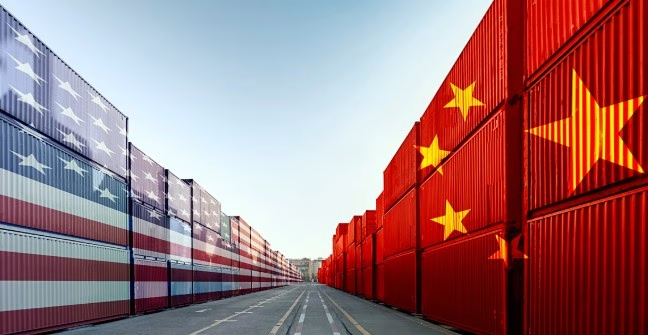Imagine a world where doctors can’t wear gloves before treating patients, where food handlers touch raw meat with bare hands, or where semiconductor factories shut down due to a shortage of clean-room gloves.
It sounds like a dystopian nightmare—but it’s a real risk we’re facing. The United States currently depends on China for over 90% of its nitrile glove supply—a critical resource in healthcare, food safety, law enforcement, and high-tech manufacturing.
This national vulnerability came into sharper focus when Robert F. Kennedy Jr. testified before Congress recently, raising alarms about our overreliance on foreign supply chains. His remarks reignited debate over a long-standing, but often ignored, threat to national security.
The COVID-19 pandemic had already exposed just how fragile our medical supply chains are. Shortages of gloves, gowns, and masks left frontline workers dangerously unprotected. As Scott Maier, CEO of Blue Star NBR, told Frontline America, the situation has only worsened:
“During the pandemic, we realized how dependent we were on Far East imports. Since then, our reliance on China has grown exponentially—now over 90%. We’re in a dangerously vulnerable position where China could cut off that supply and other critical items, effectively crippling our healthcare system.”
Maier warns this kind of leverage poses a direct threat to our national security and foreign policy. “The federal government has already invested $850 million to build up this industry. We’re close. Now we need to finish the job. America deserves a resilient, reliable medical supply chain—one that can’t be held hostage by a foreign adversary.”
Let that sink in: China could, in a matter of weeks, bring our hospitals to their knees. Maier has a plan to prevent that.
Why does this issue matter beyond healthcare? Nitrile gloves are also essential in food processing, semiconductor manufacturing, and handling dangerous substances like fentanyl. Without them, infection risks soar, food safety declines, and high-tech production slows to a crawl.
Rep. Nick Langworthy noted during Kennedy’s testimony that the U.S. currently holds only a 10-day stockpile of gloves—much of it expired or soon to be. If China restricted exports, we’d be out of options.
Kennedy acknowledged the threat, saying:
“This is a vulnerability we’re aware of. I’ve been exploring alternative supply chains, including in Argentina and Ecuador, which may be more secure than relying on China.”
But as Maier pointed out, “What Kennedy doesn’t address is where Argentina and Ecuador will source their raw materials. For competitive pricing, it still has to come from China.”
In other words, switching manufacturing to another country won’t solve the problem if the raw materials are still coming from the same place.
Despite nearly $1 billion in federal spending since the pandemic, no entirely domestic nitrile glove has been produced. Maier’s company, Blue Star NBR, built a $123 million facility in Virginia to manufacture nitrile butadiene rubber (NBR)—the critical raw material for gloves. Still, it’s sitting idle, waiting for utility funding.
“We’re extremely close,” Maier emphasized. “This isn’t just about gloves. It’s about securing our future. We must ensure that foreign adversaries can’t disrupt our medical supply chain.”
So why the delay? Bureaucratic red tape and tepid private investment are partly to blame. But the broader issue is political will.
As Maier noted in a recent social media article, the glove crisis is part of a larger trend. America faces similar vulnerabilities with rubber and plastic medical products, rare earth minerals, and pharmaceutical precursors. If left unaddressed, this could result in the loss of tens of thousands of good manufacturing jobs and devastate entire communities.
The Trump administration made initial strides toward reshoring production, but those efforts have since stalled. Now, with renewed urgency from Secretary Kennedy and business leaders like Maier, the U.S. has a narrow window to course-correct.
This is about more than gloves. It’s about national resilience, job creation, and control over essential lifelines. The time to act is now—because once our 10-day supply runs out, we won’t have the luxury of waiting.
